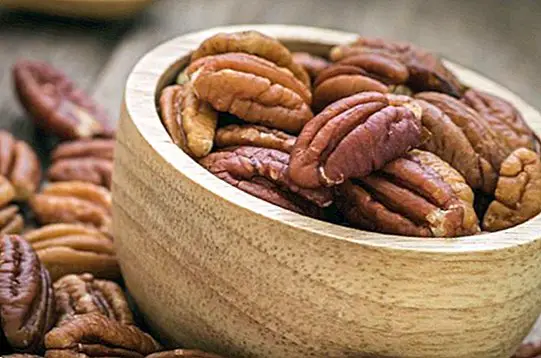Gastroenteritis in babies: symptoms, causes and treatment
There is nothing that can worry a mother or a father that his son is sick, especially when he is suffering from stomach flu, for the different complications that can have if the child is not hydrated properly and conveniently.
In the particular case of gastroenteritis, we are faced with the inflammation of both the mucosa of the stomach and the intestines. In fact, while the inflammation of only the mucosa of the stomach is medically known by the name ofgastritis, the only inflammation of the intestines is calledenteritis (hence his full medical name). 
We have a tremendously common digestive and intestinal disease, which consists not only in inflammation, but also in our own irritation of the whole tube and digestive tract. It is also known from a more popular point of view with the denomination of stomach flu, which can lead to error because it is not really caused by any flu virus or influenza.
What are the causes of gastroenteritis in babies?
Gastroenteritis is caused by different types of viruses, among which we find the rotavirus, adenovirus, astrovirus and calicivirus, which are precisely the most common.
If we take into account that Viral gastroenteritis is extremely contagious, it is quite likely that the sick baby has shared a toy, kitchen utensil or even eaten some food or drink contaminated with the virus. For this reason it is a very common virus in day care centers, where contagion occurs more easily. 
There are also other forms of contagion. For example, touching feces or infected fecal matter (a diaper or wipe used to clean the baby), and then holding his hands to his mouth. Although it may seem unpleasant, the reality is that this happens on many occasions, especially in day care centers.
In fact, it is estimated that most babies contract gastroenteritis at least three times a year, especially if they go to daycare centers daily or frequently and they are still small. It's more, After 3 years, they are not as likely to contract the disease as often because their immune system improves..
What are the symptoms of gastroenteritis in babies?
The symptoms can be mild or severe, and their duration can also last only a few hours in some cases or up to several days (between two to three days approximately) depending on the cause that gave rise to the infection and therefore the disease . 
Among the most common symptoms that arise when the baby has gastroenteritis, we can name them below in the following section:
- Diarrhea.
- Vomiting
- Fever.
- Shaking chills.
- Muscle pain and headache.
- Abdominal pain.
However, the most common is that at the beginning the baby loses its appetite, and then after a few hours diarrhea begins to appear. Later, vomiting, watery diarrhea, fever and stomach pains are common.
How is the treatment of gastroenteritis in babies
It is essential to maintain adequate hydration, so that the baby must owe a large amount of fluids to avoid dehydration, given that through both diarrhea and vomiting the small tends to lose a lot of fluids. Thus, it is advisable to follow some of the following recommendations:
- If your baby takes the breast:there is no need to change anything in the diet, so that the mother can continue to breastfeed equally. However, during the acute phase that can last between 3 to 4 hours, it is advisable to suspend breastfeeding momentarily until the vomiting disappear (obviously, if the baby has vomiting). Then you can breastfeed again. It is also advisable to offer the baby between doses a balanced solution of salts and sugars especially developed for babies.
- If the baby takes the bottle:It is advisable to suspend the bottle feeding for at least 12 hours, and offer only the solution of salts and sugars indicated by the pediatrician.
- If you already eat solid foods:in these cases it is advised that during the first 24 hours you do not consume any food, only advising you water, tea and carrot juice, without sugar. In addition to offering an oral rehydration solution when nausea has subsided. Then small amounts of biscuits, white rice or chicken breast are recommended when the baby does not have vomiting or diarrhea.

When to call the doctor?
It is advisable to call your pediatrician if the baby begins to vomit or have diarrhea, and when your symptoms last more than 24 hours (especially vomiting and diarrhea) or you see blood in your stool.
You should also go to the doctor when the child has any symptoms of dehydration, such as if it is more than 6 hours without wetting the diaper, sleeps a lot or is very irritable, has wrinkled skin and sunken eyes, has dry lips or fontanelle sunken. This article is published for informational purposes only. You can not and should not replace the consultation with a Pediatrician. We advise you to consult your trusted pediatrician. ThemesDiseases in babies and children


